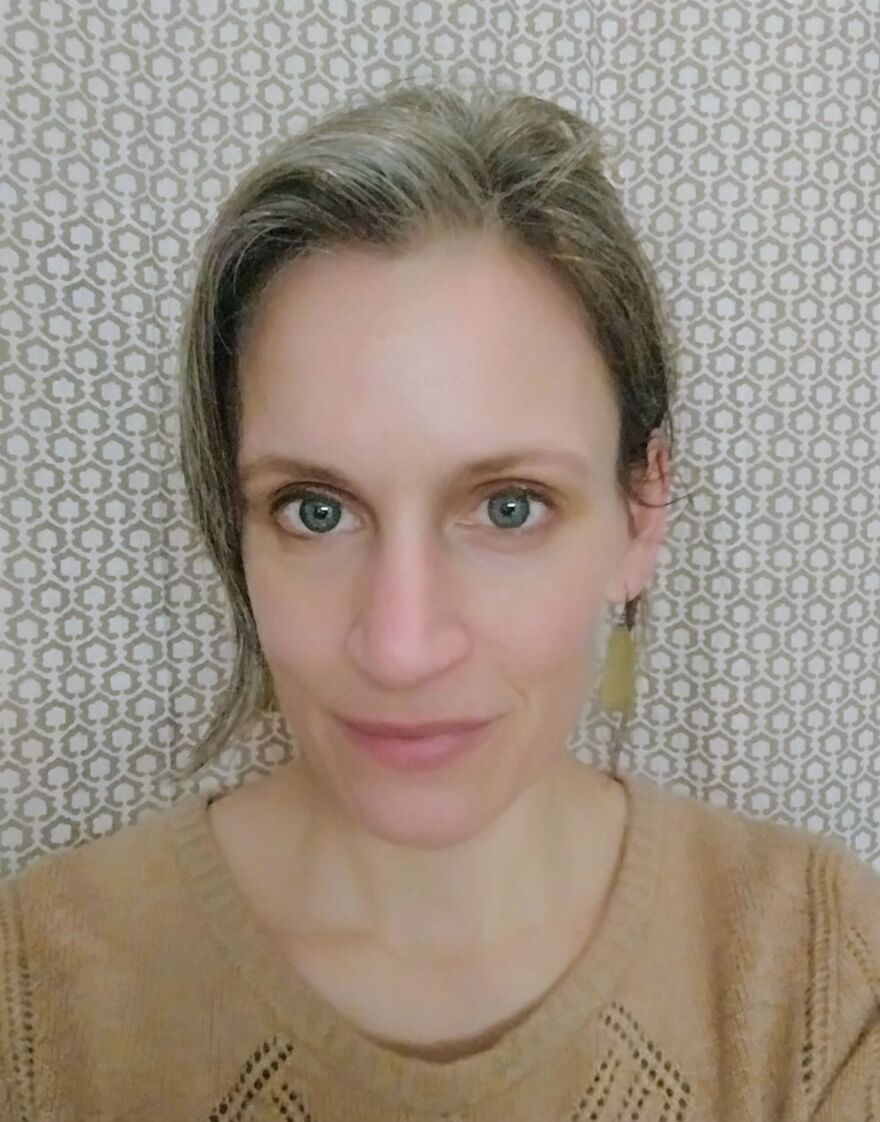“He was like a pebble, a pearl that lived under my tongue in that place no one would ever touch with fingers, where my laughter washed over his curved back. I considered his various pasts: sea- or river-worn, tumbled and tragically washed for God knows how long. He was a bulb of promise, nacreous and luminary, where he sensed my words before they crossed my lips, where he navigated the shadowy channels I couldn’t possibly see. He lived sometimes inside my cheek and he knew what was at stake: if he happened by some mishandling to land between my teeth, one of us would crack. We both agreed on symbiosis and made a promise against fracture.” -- Amy Ratto Parks
The following highlights are from a conversation with Amy Ratto Parks about her mosaic novel, Radial Bloom. To hear the full conversation, click the link above or subscribe to our podcast.
What was your husband’s reaction to this book?
At the time every little chunk started, “My lover. . .” For obvious reasons I was really worried about how he would respond as a non-creative writer to that manuscript. When he got to the fourth one he said, “Come here. Well I think by the fourth one it’s obvious this isn’t a real human.” And I said, “Oh, okay, now I feel better." Now I can go on with continuing to write the book.
It’s called a mosaic novel, a verse novel, as well as a series of prose poems. How have you been describing it to your friends and family?
Actually that was part of the thing that made me the most nervous about this. I don’t really know what to say about this book sometimes. It makes me chuckle a little bit that it still gets called a lot of different things because I didn’t know what to call it when I was writing it either. I’m a poet, so I imagined I was writing poems and I think I just describe it as a story about two people. When I was working on it, I asked a friend who is a fiction writer, “Can you have a novel that has plot and character but no scene?” And he said, “I can’t say no.”
Laughing
So it’s a story. Beyond that I feel people read into it what they want. I’ve had a lot of interesting responses to what it’s about and that makes me kind of happy with just calling it a story of some kind.
Break
Who are you recovering in this book?
A lot of this book really is for me. It’s a lot of things but I think the real catalyst for this book was a conversation with a girlfriend. We were talking about how we’d both known our husbands for a very long time. I met my husband when I was 19 and she met hers in middle school and they’d dated on and off, and I said “How did you end up together?” And she said, “I think he was the lover I couldn’t forget.”
I thought about that so much and I realized to me that’s what writing was. I do all these other things that are explicitly not about being a poet as a career. But I just can’t forget it. So that’s why each piece would start out, “My lover is . . . ” To me, writing is really about a muse that is like a ghost that is like a part of a self that is just difficult to reconcile and make sense of in daily life. A part of yourself that experiences things differently than the part of yourself that interacts with other people—that lives in the ceiling looking down on everything, it feels very split. As the book kept going that was very much where I was like, “Oh I hide it away.”
Every time I read it I still feel like I didn’t write it. I have that experience again, of being like “Oh, it can all be all in one person. It doesn’t have to be hidden or split.” I get so emotional just thinking about it.
About the Book:
“In this verse novel, we follow the bewitching journey of a woman whose life becomes entangled with a visiting ghost. Befriended, loved, and borrowed for his wounds, we traverse, prayer by prayer, along ‘the ridgelines, the movement of the stars.’ Amy Ratto Parks bestows unto us a body of ‘thin air,’ which is, ‘any air we fall through,’ where hellish muses, gifts, and otherworldly forces may come before us, troubled and far from sin. In a world teeming with familiar devastations, charted and uncharted, Radial Bloom is a body of dreams, ‘blowing smoke into the cold night, blowing…like rescue…like love…[like] the long bell of evening.’ As we descend below waters, we are astonished that somewhere in a field of honeysuckle lives a song moored in our hearts — a song of wrought paradise, ‘throwing knives, throwing knives into trees.’”
~ Khaty Xiong, author of Poor Anima

About the Author:
Amy Ratto Parks’ poetry, fiction, and essays appear in literary, popular, and academic journals. She is the author of the book How to Remember the World, (forthcoming, 2019), and two poetry chapbooks, Song of Days, Torn and Mended and Bread and Water Body, the winner of the Merriam Frontier Chapbook Prize. She is the Assistant Director of Composition and the Executive Director of the Institute of Health and Humanities at the University of Montana. Visit amyrattoparks.com for more information.


